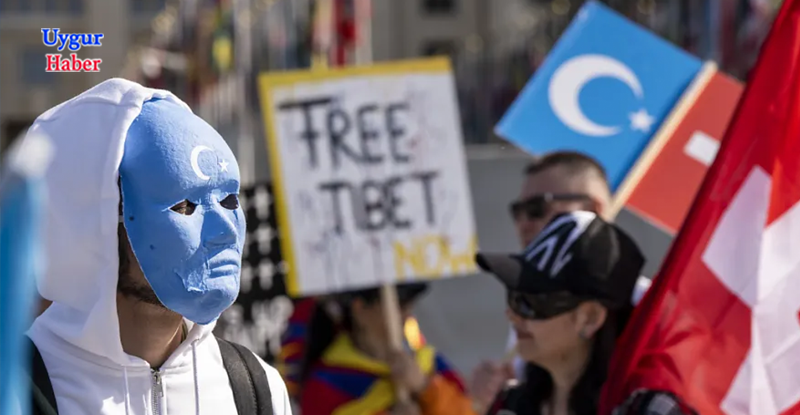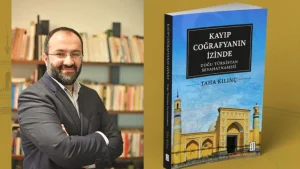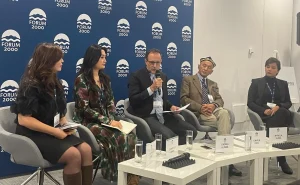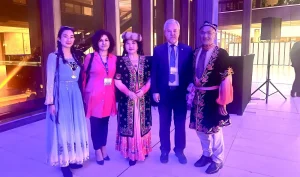A new UN report reveals China’s cross-border harassment of Uyghur activists and other human rights defenders, highlighting growing reprisals against exiled critics.
The latest U.N. report on reprisals highlights a growing and sophisticated pattern of transnational repression, documenting cases from more than two dozen countries, including China. The report underscores concerns over how some states exploit international institutions such as the U.N. and Interpol to intimidate, harass, and silence human rights defenders, journalists, and activists working abroad. These acts often extend beyond the immediate target, putting family members, colleagues, and communities at risk, while creating a chilling effect on ongoing advocacy for human rights.
Among the notable cases detailed in the report is Uyghur linguist and activist Abduweli Ayup. Ayup, who fled China in the mid-2010s after 15 months of detention, has been a prominent advocate for the preservation of the Uyghur language and culture. According to the report, during a U.N.-affiliated international language technologies conference in February 2025, Ayup raised concerns about the Chinese government’s suppression of the Uyghur language. Following his intervention, he was approached by unidentified individuals who questioned him about his family, reflecting the cross-border risks faced by exiled activists.
Ayup also faced administrative obstacles: conference organizers initially told him they could not approve his research presentation. He subsequently delivered it informally during a coffee break, yet reported being filmed without consent and followed throughout the event. UNESCO later described the incident as a miscommunication, asserting that an internal investigation found no wrongdoing. Nevertheless, the U.N. report frames these incidents as examples of reprisals against individuals engaging with U.N.-affiliated activities, signaling the broader dangers faced by activists from repressive states.
The report also highlights the cases of Hong Kong pro-democracy activists Carmen Lau and Anna Kwok. Both faced repeated retaliation from the Chinese government due to their involvement with the U.N. and international advocacy. In December 2024, Hong Kong authorities labeled them fugitives and offered bounties for information leading to their arrests. Their passports were revoked, and Lau reported being subjected to digital surveillance, smear campaigns, and harassment of family members who remain in Hong Kong. In March 2025, a video allegedly generated by artificial intelligence and depicting Lau making false statements was widely circulated on social media. These tactics illustrate the increasingly sophisticated and cross-border nature of reprisals.
Experts, including Raphäel Viana David of the International Service for Human Rights, emphasized that the report reflects a growing recognition within the U.N. of transnational repression as a deliberate tool used by states to intimidate and punish critics abroad. The OHCHR continues to provide support, protection advice, and guidance to victims while encouraging member states and U.N. bodies to strengthen safeguards to prevent such reprisals.
The report stresses that these cases are not isolated incidents but part of a broader pattern of cross-border intimidation. By documenting harassment and threats faced by individuals like Ayup, Lau, and Kwok, the U.N. report highlights how authoritarian states can extend coercive pressure beyond their borders, targeting diasporas, advocacy networks, and civil society. For Uyghur activists in particular, the report underscores the persistent threats stemming from Beijing’s policies in Xinjiang, which include mass detention, forced labor, and cultural suppression.
The U.N. report ultimately serves as both a warning and a call to action. It emphasizes the urgent need for coordinated international measures to protect human rights defenders, ensure their safe participation in U.N.-affiliated events, and hold accountable those responsible for transnational reprisals. The experiences of Uyghur activists like Ayup, alongside Hong Kong advocates, illustrate how global institutions must remain vigilant and proactive in safeguarding the rights of those who courageously speak out against repression.
Senior Uyghur activist and founding president of the Ilham Tohti Initiative, Enver Can, spoke to Uyghur News about the report, expressing his appreciation for the UN’s attention to the issue. “We welcome the recent UN report and appreciate its recommendations against transnational repression.”
Can also stressed that while such reports and recommendations are important, they must be backed by real action to maintain the UN’s credibility. “On the other hand, it has been more than three years now since the so-called ‘Michelle Bachelet’ UN report was published, but ironically, it has not been debated by the OHCHR yet. Thus, we think it’s high time that statements, recommendations, and reports should be followed by deeds to preserve the credibility of the world governing body!”








Be First to Comment